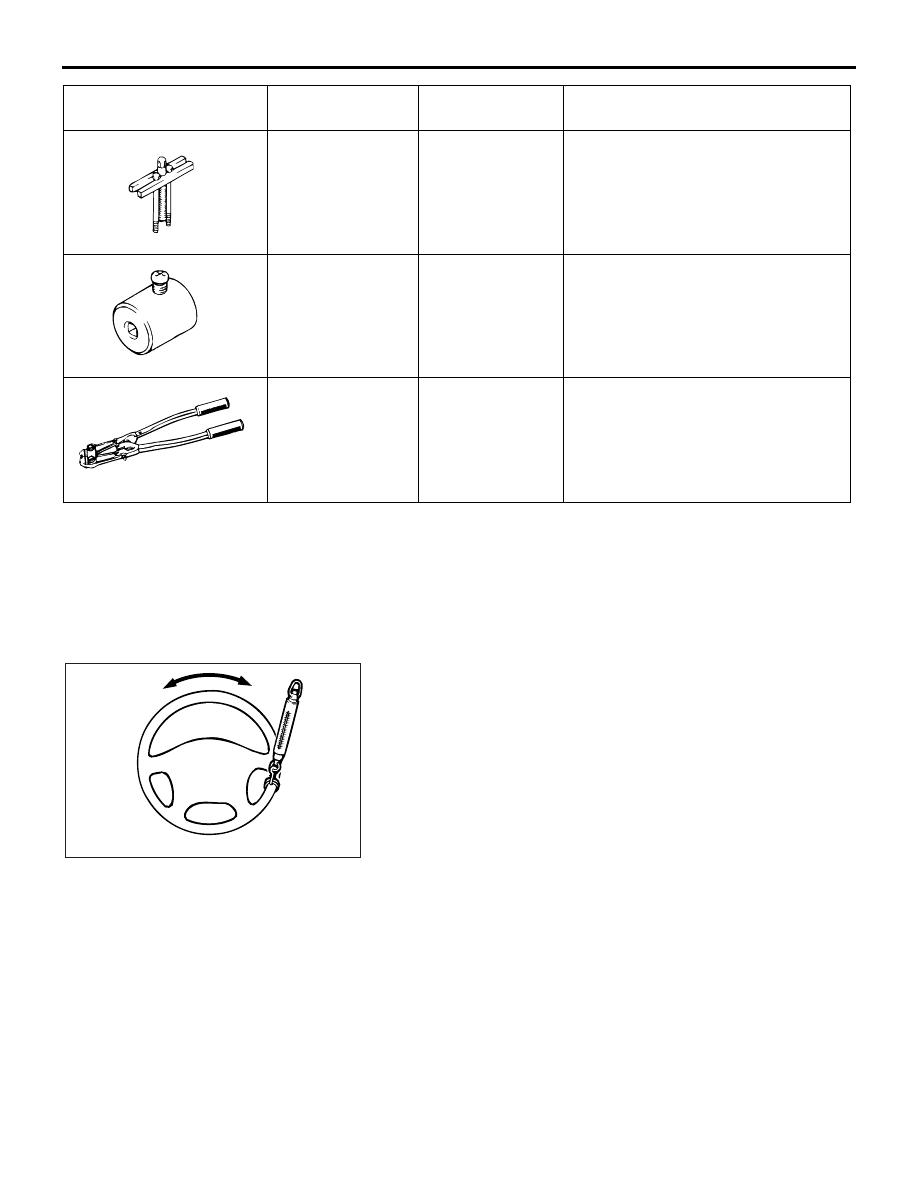Mitsubishi 380. Manual - part 854

ON-VEHICLE SERVICE
POWER STEERING
37-14
ON-VEHICLE SERVICE
STEERING WHEEL FREE PLAY CHECK
M1372001000344
1. With the engine running (hydraulic operation), set the front
wheels straight ahead.
2. Slightly move the steering wheel in both directions and
measure the play on the steering wheel circumference
before the wheels start to move.
Limit: 30 mm (1.2 inch)
3. If the play exceeds the limit, check on the steering shaft and
steering linkage connection. Correct or replace.
4. If the free play still exceeds the limit value, set the steering
wheel straight ahead with the engine stopped. Apply 5 N
(1.1 pound) towards the steering wheel circumference and
check the play.
Standard value (steering wheel play with the engine
stopped): 10 mm (0.4 inch) or less
5. If the play exceeds the standard value, remove the steering
gear (refer to
) and check the total pinion torque
(refer to
MB990803
Steering wheel
puller
-
Steering wheel removal
MB991006
Preload socket
MB990228-01
Steering gear total pinion torque
check
MB991561
Boot band crimping
tool
MB991561
Bellows band installation
TOOL
TOOL NUMBER
AND NAME
SUPERSESSION APPLICATION
MB990803
MB991006
MB991561
ACX01122AB